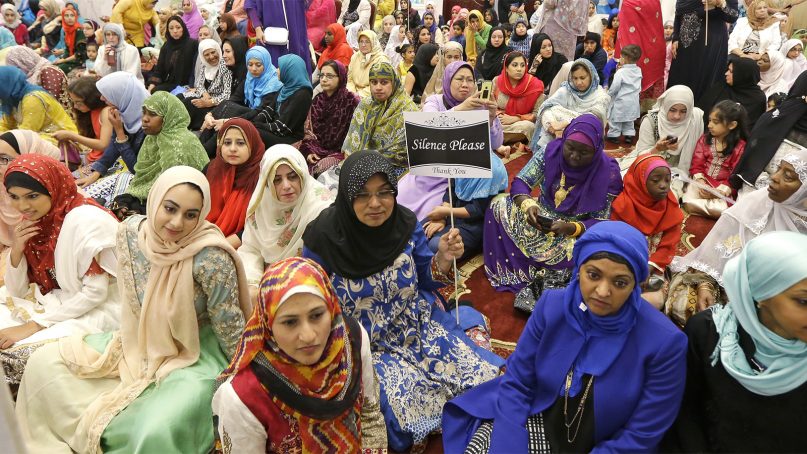(RNS) — This week, more than 3.45 million Muslims in the United States celebrated Eid al-Fitr, a major festive holiday that closes Ramadan, the month of fasting.
While this year’s Ramadan has had both highs and lows for American Muslims, with everything from interfaith iftars across the country to a ban on travel from several Muslim-majority countries in review at the U.S. Supreme Court, it has certainly been one filled with lessons.
We are being taught to recognize the ways in which our society and its systems overlook the everyday needs of our Muslim communities. This Ramadan, we saw a prime example in the corporate sector.
Last week, it became clear that large corporations like Amazon reportedly will not care for their employees by accommodating their needs at Ramadan. When Muslim Minnesotans protested how their working conditions weren’t modified to accommodate their daily daytime fasting, they weren’t only pushing back against a demanding work environment. They were protesting a corporate giant that never took the time to understand the lived experiences of its employees.
Accommodations for Ramadan and Eid can be made without disrupting business. Having events without food and drink available is a respectful way to recognize Ramadan. Other suggestions: Limit employees’ travel so families can be together for prayers while initiating and breaking the daily fast. Create meditation sessions or offer time to break the fast as a team. This can build compassion and understanding even among those who aren’t Muslim and haven’t been fasting this season.
Why are corporations reluctant to accommodate or even acknowledge Muslim holidays? It’s because of the backlash already experienced by corporations like Best Buy, which ran an ad wishing Muslims a happy Eid, or Lowe’s, which faced so much criticism for advertising during a Muslim television show that it pulled the ads to appease the critics. The corporate default position is to pretend that Muslims and their holidays don’t exist.
Beyond failing to acknowledge the Muslim consumer, corporations often don’t accommodate Muslim employees’ religious needs simply because they don’t take the time to understand or anticipate them. Many Muslims are hesitant to take off time for Eid al-Fitr, for example, because it is not a recognized holiday, and the timing of Eid is often debated because it depends on a lunar sighting.
Just imagine having to work during Christmas without any festivities or time among family. You probably wouldn’t feel valued by your company.
The first step to making accommodations for any group of people involves understanding its needs, but workplace accommodations for the American Muslim community are few and far between. Most U.S. workplaces don’t even acknowledge Eid or Ramadan, and that’s reflective of how many Americans treat our holy month in general.
But this Ramadan also provided us with hope that Muslim communities can be seen, heard and ultimately included.
This spring, we witnessed the first major corporation stepping up to recognize the holiest month of the year. Retailer Party City created a special line of Ramadan and Eid decorations. This step acknowledges the existence of Muslims being a part of the fabric of our country. After all, we make up 1.1 percent of America’s population, and that figure is only growing.
We need more than public policies. We need to celebrate our differences while appreciating our similarities in the private sector. We need to assert the fact that Muslims are just as much a part of society as other groups and make space for that accordingly across our institutions. In this, we will stop making Muslims feel separated and ashamed of their religious identities. Then we will begin to have a truly inclusive society.
(Tasmiha Khan is pursuing a Master of Arts in social impact at Claremont Lincoln University and is a Germanacos Interfaith Youth Core fellow. The views expressed in this opinion piece do not necessarily reflect those of Religion News Service.)





